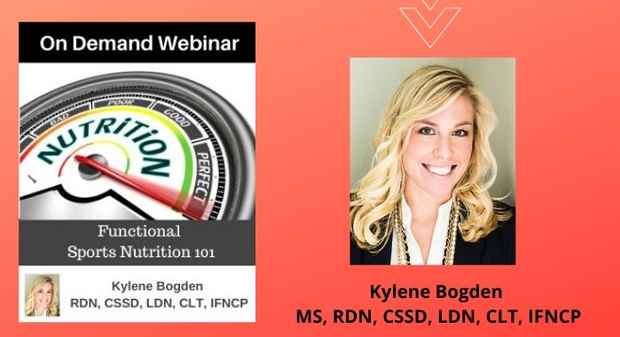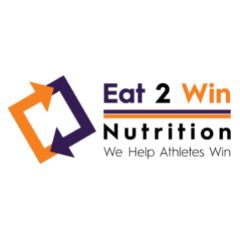Functional Sports Nutrition 101
Learn how optimize athletic performance at the root with understanding the principles of functional nutrition
Kylene Bogden MS, RDN, CSSD, LDN, CLT, IFNCP
-
What you will learn in this course:
-
Learn how to assess an athlete through a Functional Medicine/Functional Nutrition Lens
-
Review safe and effective supplementation for sport through a functional lens
-
Understand the difference between a food allergy, food intolerance, and food sensitivity
-
Discover alternative options to standard pre and post-workout fuel
-
Learn how to properly guide an athlete through a standard elimination diet protocol without
sacrificing health and performance
-
-
1 Credit Hour as Approved by Commission on Dietetic Registration (CDR)
-
CDR Performance Indicators: 7.1.1, 7.2.1, 9.1.1, 9.5.1
- 1 Credit Hour as Approved by the Board of Certification for Athletic Trainers (BOC)
-
CSSD Exam Competencies addressed:
-
Analyze and interpret available data in the context of enhancing athletic performance and health.
-
Explain how energy is stored in skeletal muscle and other tissues.
-
Evaluate and interpret factors influencing substrate use and exercise metabolism data.
-
Evaluate factors that contribute to exercise-induced fatigue.
-
Describe the effects of nutrition and exercise on health and performance.
-
Explain the use of carbohydrates during exercise training, competition, and recovery.
-
Explain the use of fat during exercise training, competition, and recovery.
-
Explain the use of protein and amino acids during exercise training, competition, and recovery.
-
Describe vitamin and mineral requirements for training and exercise.
-
Describe the potential risks of excessive vitamin and mineral supplementation on health and performance.
-
Describe antioxidant function in relation to exercise, recovery, and long-term training adaptations.
-
Describe the efficacy of vitamin and mineral supplementation on health and performance
-
Design nutrition plans for individuals and groups incorporating exercise-specific recommendations for carbohydrates.
-
Design nutrition plans for individuals and groups incorporating exercise-specific recommendations for protein.
-
Evaluate effects of inadequate vitamin and mineral status on health and performance.
-
Design nutrition strategies for individuals and/or groups for pre-workout and precompetition, during training and competition, and for recovery following training and competition.
-
Evaluate products, foods, and meals in accordance with compliance and permissibility rules of governing body.
-
Assess fluid and electrolyte balance in training and performance.
-
Evaluate the effects of dehydration, over-hydration, hypothermia, and hyperthermia on training and performance.
-
Design strategies for maintaining hydration and electrolyte balance before, during, and after exercise.
-
Evaluate fluid intake for training, performance, and recovery.
-
Evaluate the effects of environmental conditions on hydration status
-
Evaluate the efficacy and safety of popular diets for weight management, health, and performance.
-
Design nutrition strategies for active individuals with acute or chronic illness and/or injury.
-


